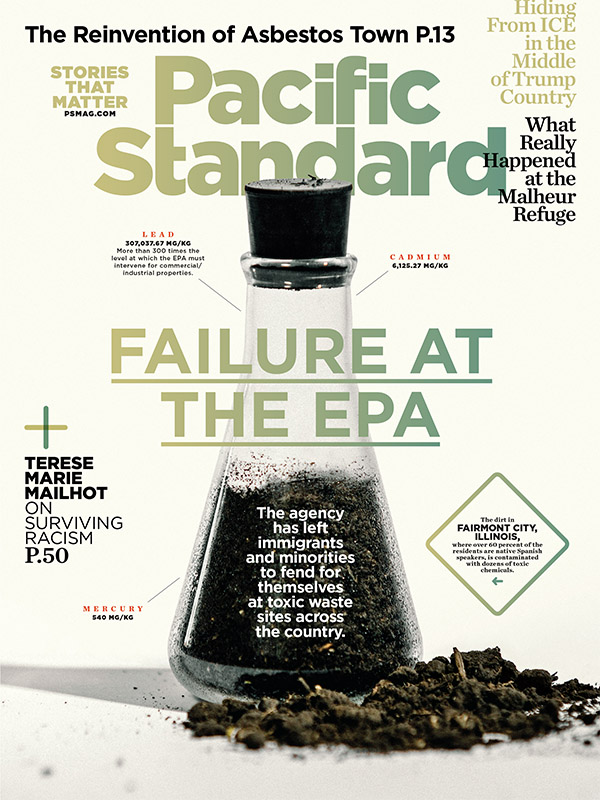On an early December morning at Golden Valley High School in Central California, a few girls, wrapped in a seasonal trend of blankets instead of coats, shuffle into Annie Delgado’s classroom. They settle into desks among other sophomores, juniors, and seniors as an electronic blare jump-starts fourth period. Delgado, 45, reading glasses pushed to the top of her head, instructs them to reflect on the conversations about body positivity and social media they began last fall. “Do you ever stop to think what your feed is feeding your mind?” she often asks. “And how is this shaping or influencing how you view yourself?”
Standing, as students must when they speak here, Kaitlin Roberts, a junior, shares her experience with her 37 peers. “I started following people who are more plus-size,” she says, “because I feel like I can relate more to them.” Faith Perez, a senior, makes the earnest observation that Beyoncé’s photos falsely suggest that her body snapped into shape immediately after she gave birth to twins. “I have a bunch of stretch marks,” Perez says. “But I call them my battle scars. My pregnancy was a secret, so I went through it alone. They really mean a lot to me.”
Women’s studies courses at the high school level are rare in the United States, with the vast majority of students denied education on contemporary gender discrimination until they attend college—if they attend college. There might be fewer than 25 courses like Delgado’s around the country, according to the only estimate—a tiny figure, but a growing one, thanks to concerned educators who find each other online under #HSfeminism.

Merced, an agricultural community of swing voters, has been the unlikely home to Delgado’s class since 2008, when Ernie Sopp, then a district principal, had the unorthodox idea that a women’s history course could empower girls on his campus to break multigenerational cycles of abusive relationships and teenage pregnancy. The plan made sense to Delgado, perennially ambitious and born to a teenage mother herself. She’d recently returned to the economically disadvantaged region after an unsatisfying stint practicing civil rights law in Washington, D.C. As a new teacher, she shared Sopp’s concern that the core curriculum was failing to serve her students: While the Merced Union High School District is 49 percent female and 67 percent Hispanic, its U.S. history textbook allocates only about 20 percent of its pages to female issues, and less than 7 percent to those of Latinos.
Delgado says she hit roadblocks trying to galvanize the class with stories of “she-roes” such as Dolores Huerta and Sojourner Truth. “They didn’t see themselves as capable of achieving what these women had accomplished because they were struggling so much within their own worlds.” To break through, Delgado created prequel units to address ways in which a long history of gender and race discrimination affect students’ lives today. This curriculum—which she currently implements on two campuses, one an alternative education site—includes study of relationships, body image, and suicide.
Even boys have tuned in. Navigating an outdoor hallway in cowboy boots, Gabriel Lopez says that if he’d taken the class before his last break-up, “I probably wouldn’t have been the one taking charge and saying what goes.” Ethan Davis says the most surprising thing he’s learned from the course is “how to feel again.”
Lessons on the fight for gender equity often bleed beyond the classroom. In October, Delgado filed a sexual harassment complaint against a colleague, a teacher and coach the district has investigated and found culpable. Delgado is now working with her union on a campaign to achieve gender parity in the leadership of the district office, which is entirely male, as is the school board.
Recognized by the Obama White House as a 2016 Champion of Change, Delgado says another one of her goals is to turn her elective into a compulsory course or unit. Her hope is that students’ stories of transformation will continue to help the program grow. Alumni often contact her when they break a difficult family cycle or find themselves applying feminist concepts in the workforce, the military, or college. When announcing the course’s 10th anniversary on an alumni Facebook page this January, Delgado discovered a direct message from Laurie Chang, a former student now completing a graduate degree in education. “The course opened my eyes,” Chang had written. “I am not a statistic because of you.”
A version of this story originally appeared in the May 2018 issue of Pacific Standard. Subscribe now and get eight issues/year or purchase a single copy of the magazine. It was first published online on May 1st, 2018, exclusively for PS Premium members.
*All students’ names have been changed to protect their privacy.





